Harley-Davidson Agrees To Stop Sale Of Super Tuners In EPA Settlement

Per a settlement reached with the Environmental Protection Agency (EPA), Harley-Davidson has agreed to discontinue the sale of its Super Tuners. In addition, the settlement also requires Harley-Davidson to buy back and destroy the devices from its dealers, according to the government complaint. In addition, Harley-Davidson will also pay a $12 million civil penalty and spend $3 million to mitigate air pollution through a project that replaces conventional woodstoves with cleaner-burning units in local communities.
The Super Tuner is a module that essentially reflashes the ECU for optimum EFI performance. As a side effect, however, it also causes the motorcycle to emit higher emission levels than what was originally certified with the EPA. The EPA in turn is claiming aftermarket defeat devices like the Super Tuner are a violation of the Clean Air Act. The EPA allege that by selling its Pro Super Tuner through its U.S. dealer network, Harley-Davidson enabled dealers and customers to tamper with motorcycles used on public roads. Harley-Davidson disagrees with the EPA’s position, noting that the tuner was designed and sold as an after-market, competition-only product used to adapt engine parameters for use with Harley-Davidson aftermarket equipment.
Nonetheless, as an act of good faith – not guilt – Harley-Davidson has agreed to stop the sale of Super Tuners. Going forward, Harley-Davidson will be required to obtain a certification from the California Air Resources Board (CARB) for any tuners it sells in the United States in the future. The CARB certification will demonstrate that the CARB-certified tuners do not cause Harley-Davidson’s motorcycles to exceed the EPA-certified emissions limits. Harley-Davidson will also conduct tests on motorcycles that have been tuned with the CARB-certified tuners and provide the results to EPA to ensure that its motorcycles remain in compliance with EPA emissions requirements.
The full press release from the EPA, as well as Harley-Davidson’s, can be seen below.
Harley-Davidson to Stop Sales of Illegal Devices that Increased Air Pollution from the Company’s Motorcycles
WASHINGTON – The U.S. Environmental Protection Agency (EPA) and the U.S. Department of Justice (DOJ) today announced a settlement with Harley-Davidson, Inc., Harley-Davidson Motor Company Group, LLC, Harley-Davidson Motorcycle Company, Inc., and Harley-Davidson Motor Company Operations, Inc. (collectively Harley-Davidson), that requires the companies to stop selling and to buy back and destroy illegal devices that increase air pollution from their motorcycles, and to sell only models of these devices that are certified to meet Clean Air Act emissions standards. Harley-Davidson will also pay a $12 million civil penalty and spend $3 million to mitigate air pollution through a project to replace conventional woodstoves with cleaner-burning stoves in local communities.
The government’s complaint, filed today along with the settlement, alleges that Harley-Davidson manufactured and sold approximately 340,000 illegal devices, known as “super tuners,” that, once installed, caused motorcycles to emit higher amounts of certain air pollutants than what the company certified to EPA. Aftermarket defeat devices like these super tuners alter a motor vehicle’s emissions controls and are prohibited under the Clean Air Act for use on vehicles that have been certified to meet EPA emissions standards. Harley-Davidson also made and sold more than 12,000 motorcycles that were not covered by an EPA certification that ensures a vehicle meets federal clean air standards.
“This settlement immediately stops the sale of illegal aftermarket defeat devices used on public roads that threaten the air we breathe,” said Cynthia Giles, assistant administrator for EPA’s Office of Enforcement and Compliance Assurance. “Harley-Davidson is taking important steps to buy back the ‘super tuners’ from their dealers and destroy them, while funding projects to mitigate the pollution they caused.”
“Given Harley-Davidson’s prominence in the industry, this is a very significant step toward our goal of stopping the sale of illegal aftermarket defeat devices that cause harmful pollution on our roads and in our communities,” said Assistant Attorney General John C. Cruden, head of the Justice Department’s Environment and Natural Resources Division. “Anyone else who manufactures, sells, or installs these types of illegal products should take heed of Harley-Davidson’s corrective actions and immediately stop violating the law.”
Since January 2008, Harley-Davidson has manufactured and sold two types of tuners, which when hooked up to Harley-Davidson motorcycles, allow users to modify certain aspects of a motorcycle’s emissions control system. These modified settings increase power and performance, but also increase the motorcycles’ emissions of hydrocarbons and nitrogen oxides (NOx). These tuners have been sold at Harley-Davidson dealerships across the country.
The Clean Air Act requires motor vehicle manufacturers to certify to EPA that their vehicles will meet applicable federal emissions standards to control air pollution, and every motor vehicle sold in the U.S. must be covered by an EPA-issued certificate of conformity. The Clean Air Act prohibits manufacturers from making and selling devices that bypass, defeat, or render inoperative a motor vehicle’s EPA-certified emissions control system. The Act also prohibits any person from removing or rendering inoperative a motor vehicle’s certified emissions control system and from causing such tampering. The complaint alleges violations of both these provisions.
Under the settlement, Harley-Davidson will stop selling the illegal aftermarket defeat devices in the United States by August 23, 2016. Harley-Davidson will also offer to buy back all such tuners in stock at Harley-Davidson dealerships across the country and destroy them. The settlement requires the company to obtain a certification from the California Air Resources Board (CARB) for any tuners it sells in the United States in the future. The CARB certification will demonstrate that the CARB-certified tuners do not cause Harley-Davidson’s motorcycles to exceed the EPA-certified emissions limits. Harley-Davidson will also conduct tests on motorcycles that have been tuned with the CARB-certified tuners and provide the results to EPA to ensure that its motorcycles remain in compliance with EPA emissions requirements. In addition, for any super tuners that Harley-Davidson sells outside the United States in the future, it must label them as not for use in the United States.
The complaint also alleges that Harley-Davidson made and sold more than 12,000 motorcycles from model years 2006, 2007 and 2008 that were not covered by an EPA certificate of conformity. A certificate of conformity covers only the motorcycle models that were included in the certification application and that are listed on the certificate. These 12,000 motorcycles were models that were not included in Harley-Davidson’s applications and that were not listed as covered by the relevant certificate. Under the consent decree, Harley-Davidson will ensure that all of its future motorcycle models intended for sale in the United States are fully certified by EPA.
Hydrocarbon and NOx emissions contribute to harmful ground-level ozone, and NOx also contributes to fine particulate matter pollution. Exposure to these pollutants has been linked with a range of serious health effects, including increased asthma attacks and other respiratory illnesses. Exposure to ozone and particulate matter has also been associated with premature death due to respiratory-related or cardiovascular-related effects. Children, the elderly, and people with pre-existing respiratory disease are particularly at risk of health effects from exposure to these pollutants. The woodstove project, which Harley-Davidson will undertake in conjunction with an independent third party, will eliminate excess air pollution caused by using the illegal tuners by providing cleaner-burning stoves to designated local communities, thereby assuring better air quality in the future.
EPA discovered the violations through a routine inspection and information Harley-Davidson submitted after subsequent agency information requests.The settlement, a proposed consent decree lodged in the United Stated District Court for the District of Columbia, is subject to a 30-day public comment period before it can be entered by the court as final judgment. To view the consent decree or to submit a comment, visit DOJ’s website:
www.justice.gov/enrd/Consent_Decrees.html
More information about today’s settlement:
https://www.epa.gov/enforcement/harley-davidson-clean-air-act-settlement
Harley-Davidson, EPA reach settlement
MILWAUKEE, Aug. 18, 2016 /PRNewswire/ — Harley-Davidson, Inc. (NYSE: HOG) has reached a settlement with the U.S. Environmental Protection Agency (EPA) regarding the sale of one aftermarket tuning product used to calibrate motorcycles intended for off-road and closed-course competition. As part of the settlement agreement, the company will no longer sell its competition-only tuner in the U.S. The company will continue to sell a performance tuner designed to ensure Harley-Davidson motorcycles retain 50-state and EPA on-road emissions compliance. The settlement has no impact on the company’s other performance product offerings.
The EPA alleged that by selling its Pro Super Tuner through its U.S. dealer network, Harley-Davidson enabled dealers and customers to tamper with motorcycles used on public roads. Harley-Davidson disagrees with the EPA’s position, noting that the tuner was designed and sold as an after-market, competition-only product used to adapt engine parameters for use with Harley-Davidson after-market equipment.
“This settlement is not an admission of liability but instead represents a good faith compromise with the EPA on areas of law we interpret differently, particularly EPA’s assertion that it is illegal for anyone to modify a certified vehicle even if it will be used solely for off-road/closed-course competition,” said Ed Moreland, Harley-Davidson’s Government Affairs Director. “For more than two decades, we have sold this product under an accepted regulatory approach that permitted the sale of competition-only parts. In our view, it is and was legal to use in race conditions in the U.S.”
Harley-Davidson, one of many suppliers in the aftermarket performance parts industry, has safeguards in place to educate dealers and customers on the implications of installing Harley-Davidson performance products on their Harley-Davidson motorcycles. This includes clear product labeling of competition-only products and detail on what performance enhancements are considered street legal and for competition-use only, the legal consequences of tampering with emission controls and components, and what enhancements would void the vehicle warranty.
“Concern for our U.S. customers and dealers weighed heavily in reaching this compromise with the EPA,” said Moreland. “By settling this matter, we can focus our future attention and resources on product innovation rather than a prolonged legal battle with the EPA.”
Harley-Davidson is and has been committed to meeting or exceeding all emissions requirements for its motorcycles in every market it serves. It will continue to offer a broad range of industry-leading, compliant performance products that enable customization and performance enhancements that meet all emissions requirements and maintain the company’s vehicle warranty.
Harley-Davidson, Inc. is the parent company of Harley-Davidson Motor Company and Harley-Davidson Financial Services. Harley-Davidson Motor Company produces heavyweight custom, cruiser and touring motorcycles and offers a complete line of Harley-Davidson motorcycle parts, accessories, riding gear and apparel, and general merchandise. Harley-Davidson Financial Services provides wholesale and retail financing, insurance, extended service and other protection plans and credit card programs to Harley-Davidson dealers and riders in the U.S., Canada and other select international markets. For more information, visit Harley-Davidson’s website at www.harley-davidson.com.

Troy's been riding motorcycles and writing about them since 2006, getting his start at Rider Magazine. From there, he moved to Sport Rider Magazine before finally landing at Motorcycle.com in 2011. A lifelong gearhead who didn't fully immerse himself in motorcycles until his teenage years, Troy's interests have always been in technology, performance, and going fast. Naturally, racing was the perfect avenue to combine all three. Troy has been racing nearly as long as he's been riding and has competed at the AMA national level. He's also won multiple club races throughout the country, culminating in a Utah Sport Bike Association championship in 2011. He has been invited as a guest instructor for the Yamaha Champions Riding School, and when he's not out riding, he's either wrenching on bikes or watching MotoGP.
More by Troy Siahaan



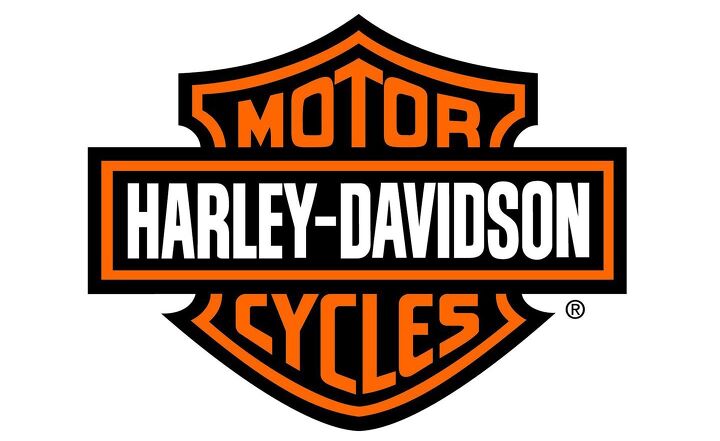





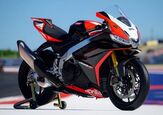
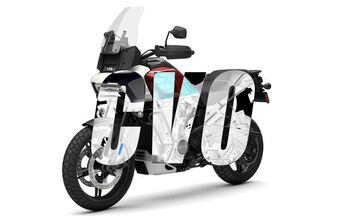
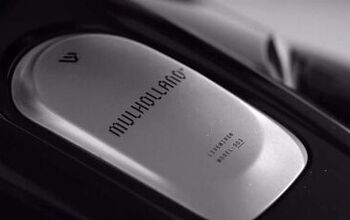
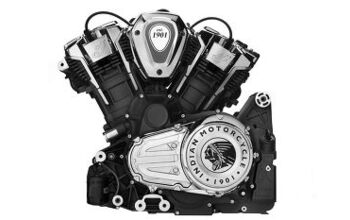
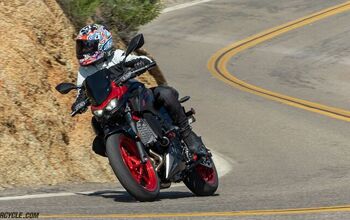

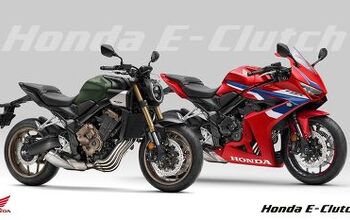
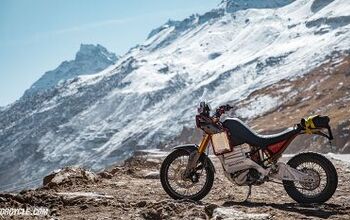
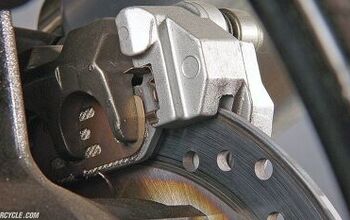



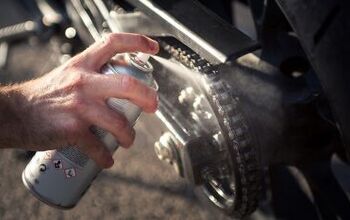
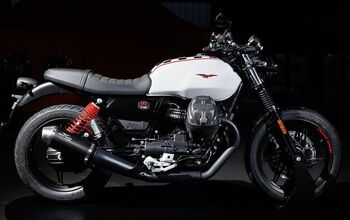


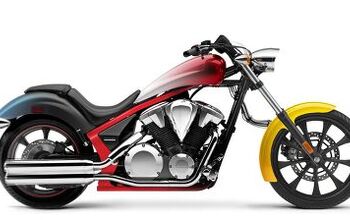
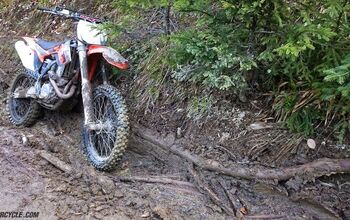

Comments
Join the conversation
This settlement is a significant move by Harley-Davidson towards environmental responsibility. By discontinuing the sale of Super Tuners, they are taking steps to comply with EPA regulations and reduce their impact on the environment. It's a positive step for both the company and the planet.